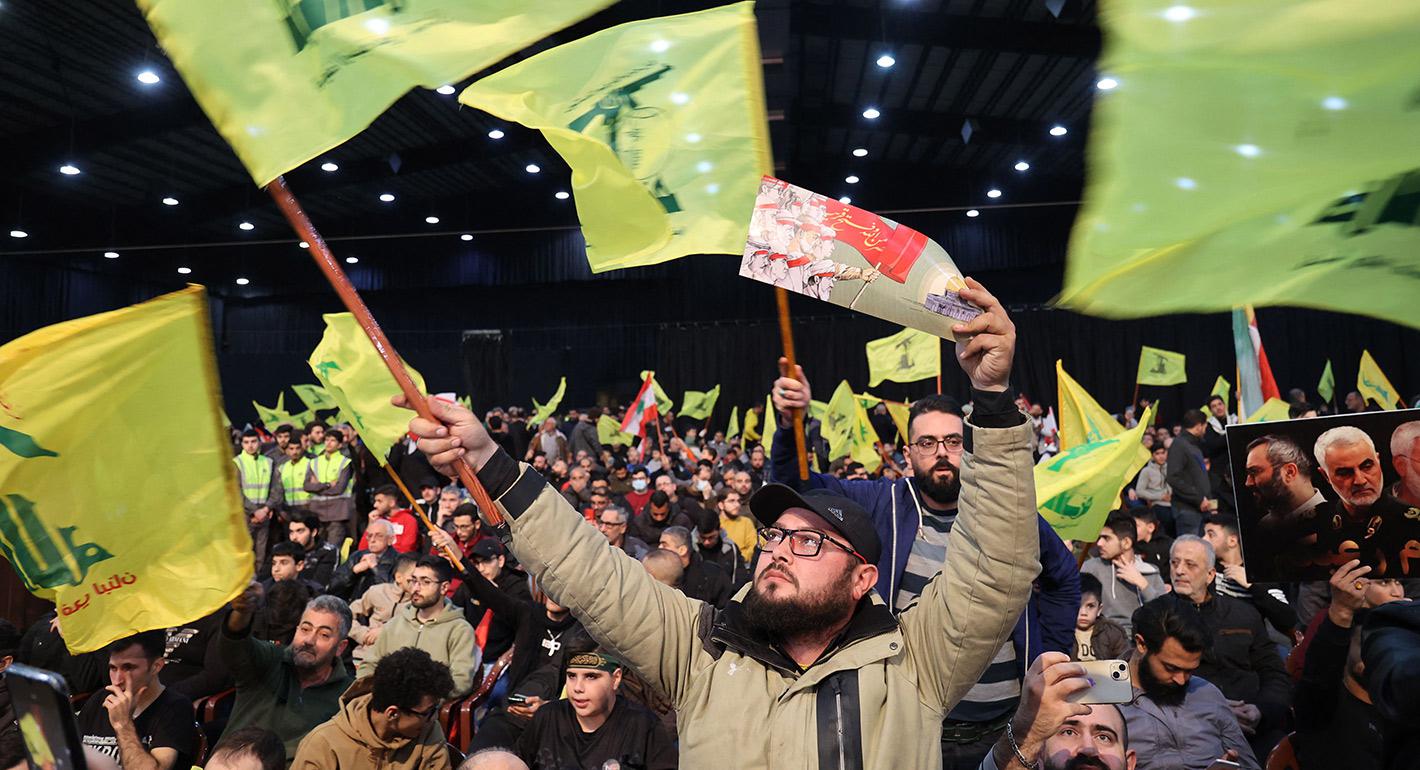Hezbollah has long declined to directly participate in any negotiations between Lebanon and Israel regarding the maritime border demarcation issue. Even in May 2000, when the United Nations drew a border demarcation between Lebanon and Israel known as the “Blue Line,” Hezbollah steadfastly held on to its anti-Israel rhetoric, insisting that it does not recognize Israel's legitimacy, and that the land border demarcation agreement did not give Lebanon its full rights.
According to energy experts, Lebanon's maritime borders are defined by line 29 and not line 23, which was recently agreed upon. The irony is that Hezbollah has not intervened directly in the negotiations for 15 years, except in recent months, when it announced its position and threatened that it would not allow Israel to transport gas from the drilling rigs to the international markets if Lebanon was not allowed to start drilling. Yet, it should be noted that Israel has already started drilling for oil and has concluded agreements with international companies to sell the gas discovered in the sea.
It is true that through this agreement, Lebanon was able to impose Line 23, which is closer to its preferred boundary, but the question that arises is how does Hezbollah view this agreement as a victory given its previous obstruction?
Hezbollah’s position could be the result of two factors. The first is the current internal conflict over the militant group’s viability and value to Lebanon, and the second is the conflict with Israel.
In the context of the first factor, Hezbollah believes that the demarcation agreement, and the key role it could play in alleviating the country’s severe economic crisis, will enhance the position of the resistance. Hezbollah has long declared that there is no alternative to the resistance—represented solely by Hezbollah—to defend Lebanon, especially since the military capabilities of the Lebanese state are no match for those of Israel.
Furthermore, Hezbollah has always believed that a military confrontation between Lebanon and Israel will not be advantageous to Lebanon’s interests. Accordingly, the group has adopted guerrilla-style resistance techniques and a defense strategy that incorporates the army, the people, and the resistance. This approach has been the subject of political controversy since 2005, as some believe it is the best way to deter Israeli aggression against Lebanon, and others think it wrongly justifies the existence of an armed group outside the scope of the official institutions of the state.
Through the demarcation negotiations, Hezbollah was able to strengthen its position and emphasize its view that the success of the agreement resulted from the party’s history of armed resistance, claiming that without the threat of military force, Lebanon would not have been able to impose its conditions. Hezbollah, by declaring that it would target energy fields if Lebanon was prevented from extracting gas, assumed the position of the protector of Lebanon's oil rights, ready to intervene the minute Israel violated the agreement. This position could provide a defense for the group when debates regarding the validity of its militant presence in Lebanon become heated.
Hezbollah further justified the border demarcation agreement by citing previous negotiations and formal agreements with Israel such as the 1996 “Grapes of Wrath” understanding in which both sides ended cross-border attacks on civilian targets, and Lebanon launched indirect negotiations with Tel Aviv regarding prisoner swaps.
As for the Israeli-Lebanese conflict, Hezbollah believes that its military presence has created an equilibrium that strengthened Lebanon’s position in the negotiations with Tel Aviv. Hezbollah’s role was that of a catalyst encouraging the long-stalled deal over the finish line by dispatching unarmed drones over the Karish gas field, thereby pressuring Israel and international parties to conclude the agreement.
The group also benefited from two additional factors that may have contributed to accelerating the agreement. First, the Russia-Ukraine war led to an increased need for gas in Europe and Israel, and second, Washington's desire to control oil prices—which have risen due to the Russian war and the OPEC Plus production cuts—has also increased. Hezbollah believes that these international circumstances enabled it to impose its conditions on Tel Aviv.
Former Israeli prime minister Benjamin Netanyahu described the agreement as a capitulation to Hezbollah’s threats after Israel waived its demand for line one. Thus, it appears that Hezbollah was able to impose a new balance in a vital and pivotal economic file for Israel.
Abbas Assi is a lecturer in Middle East politics. He holds a PhD in International Relations from the University of Leeds and two masters degrees in Political Economy and International Studies from the University of Sydney. He worked at the Center for Arab Unity Studies and was a research associate at the Arab Council for the Social Sciences. Follow him on Twitter: @DrAbbasAssi.






